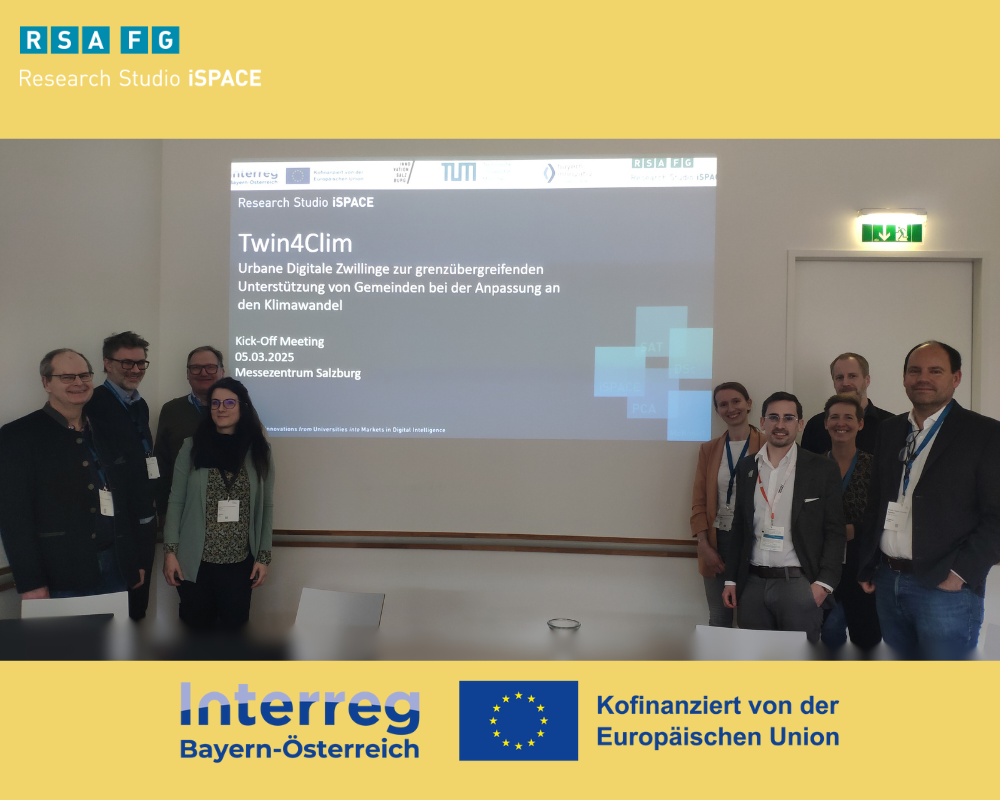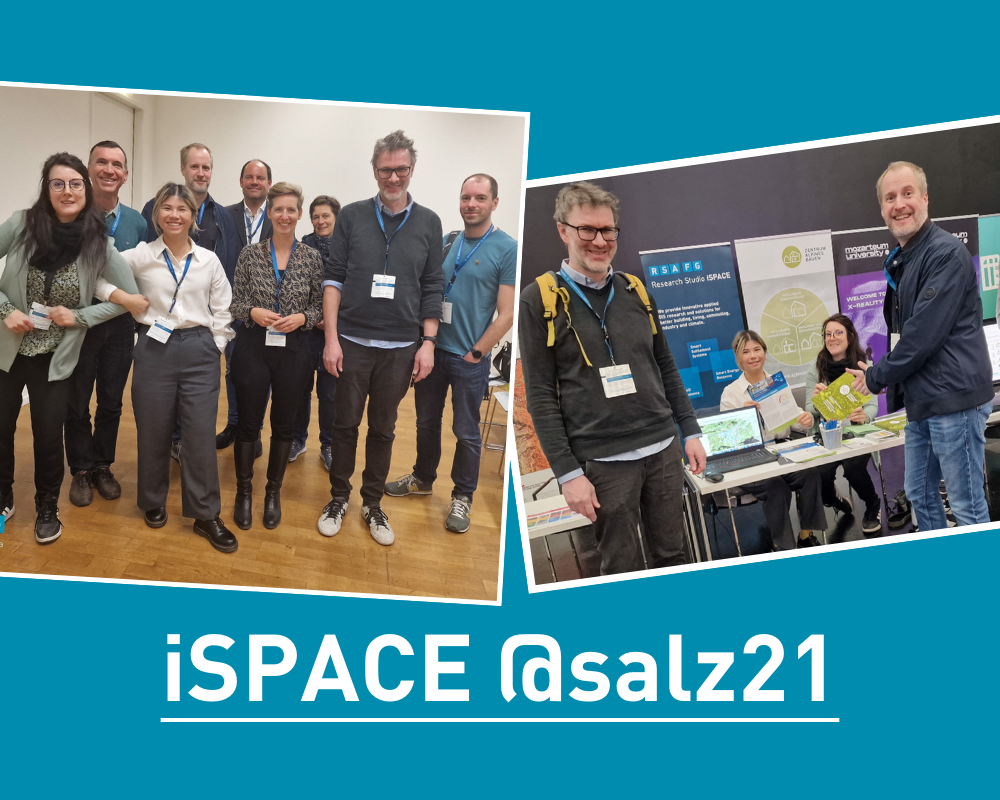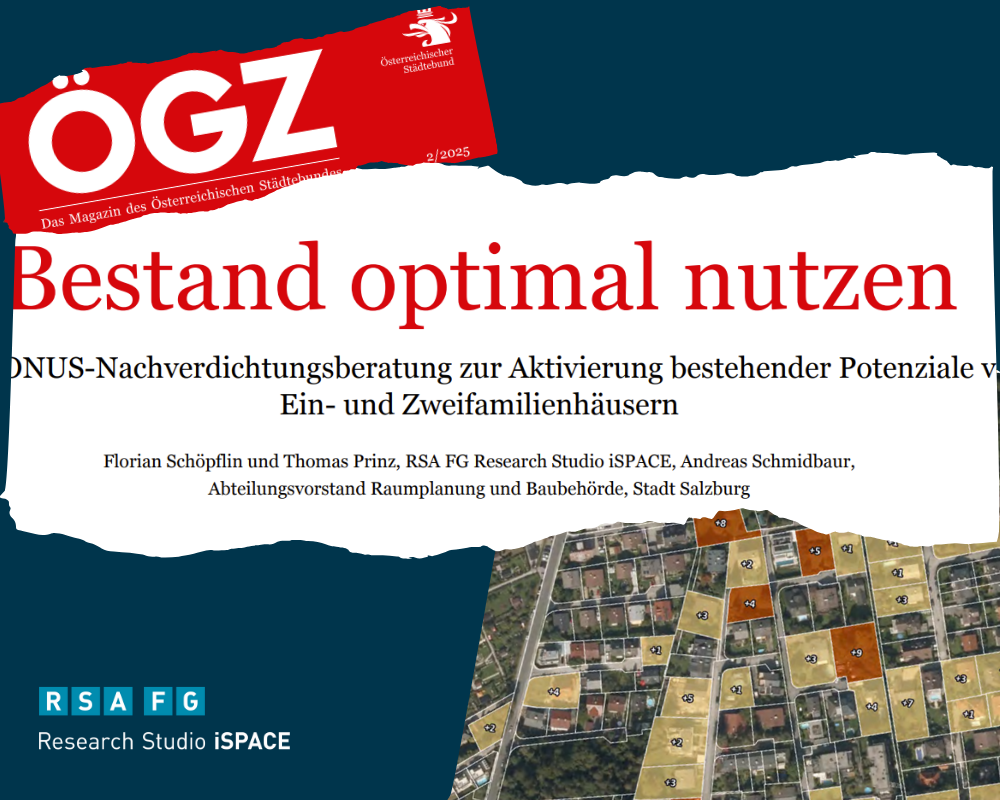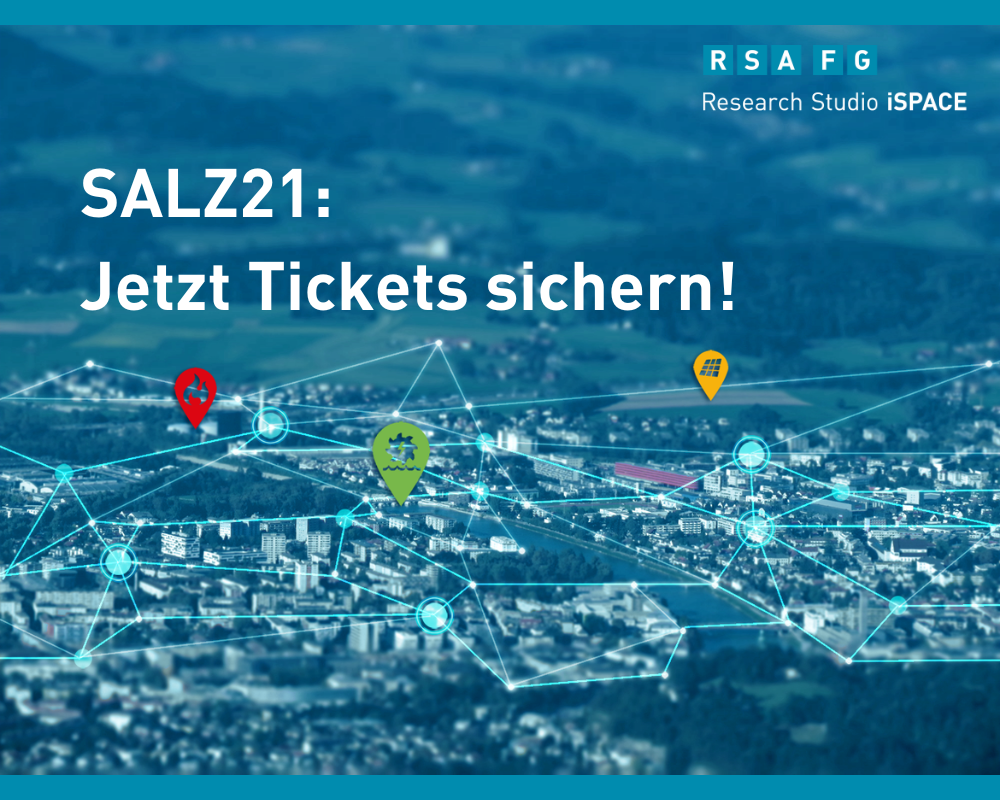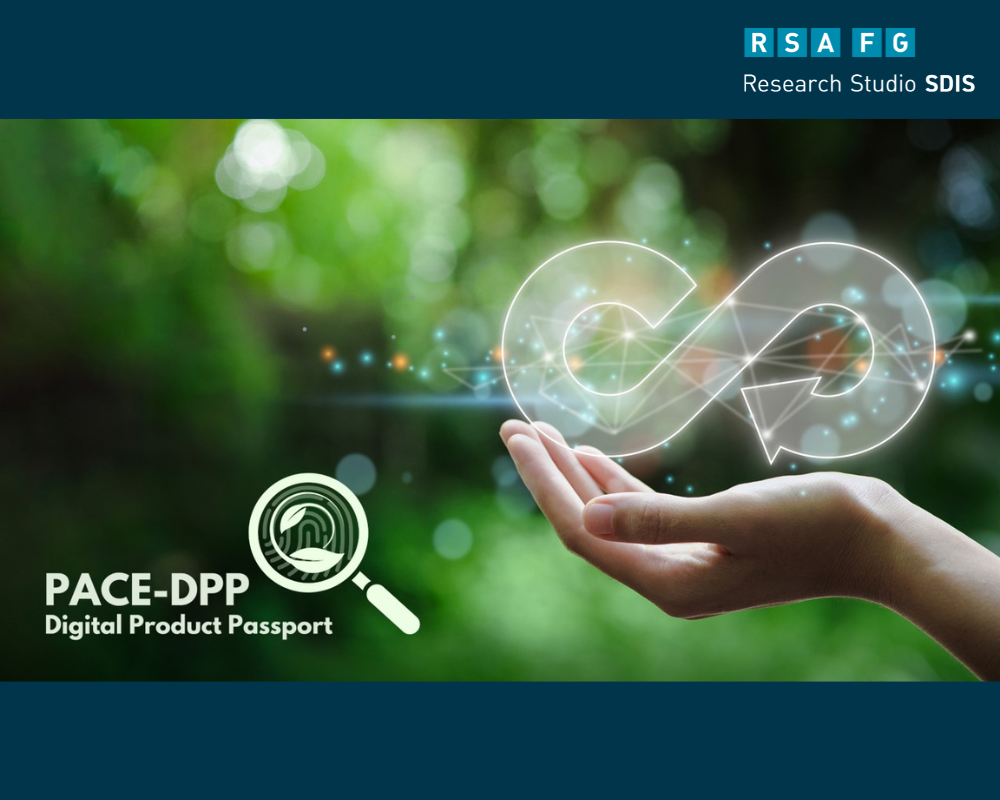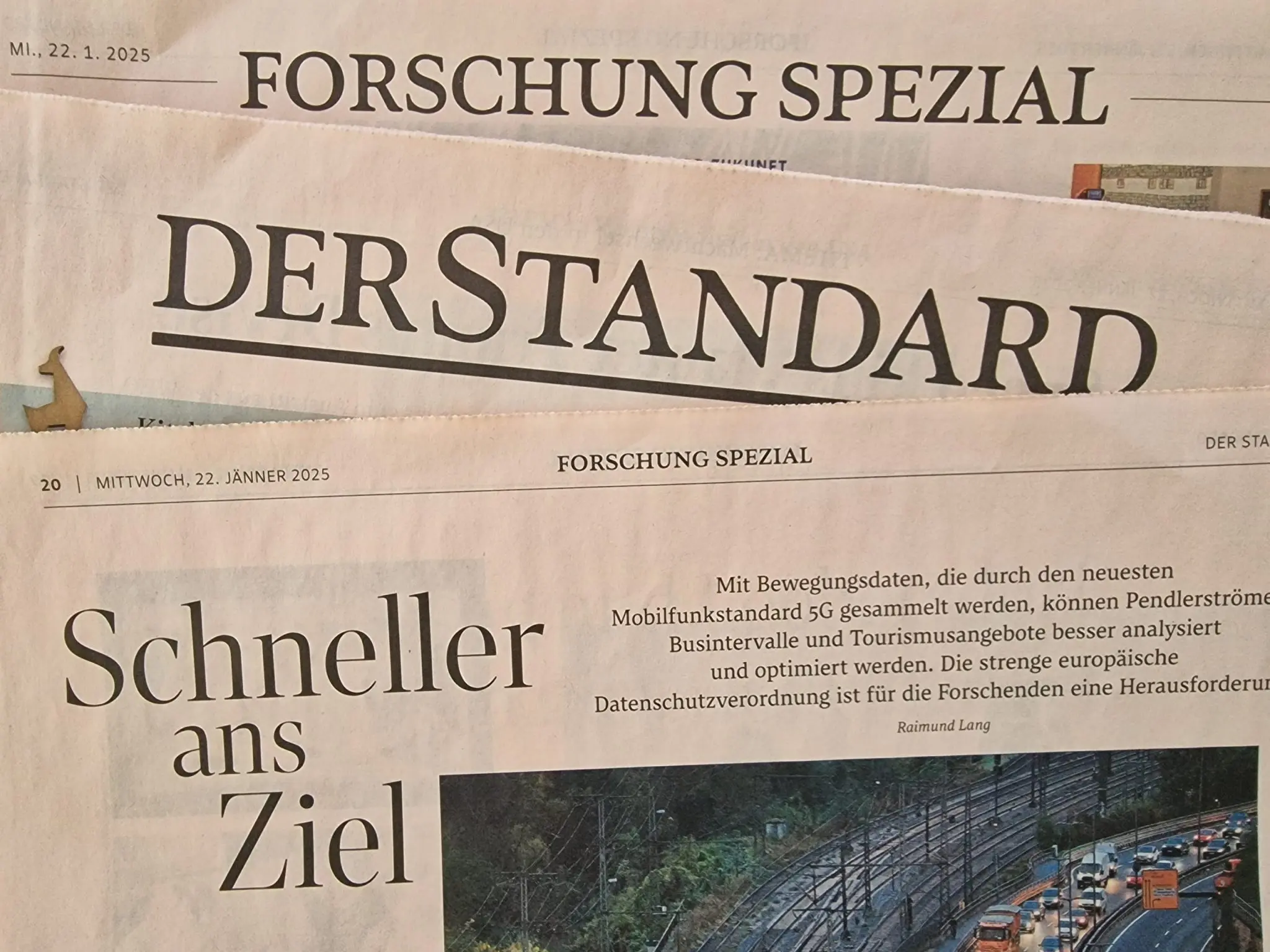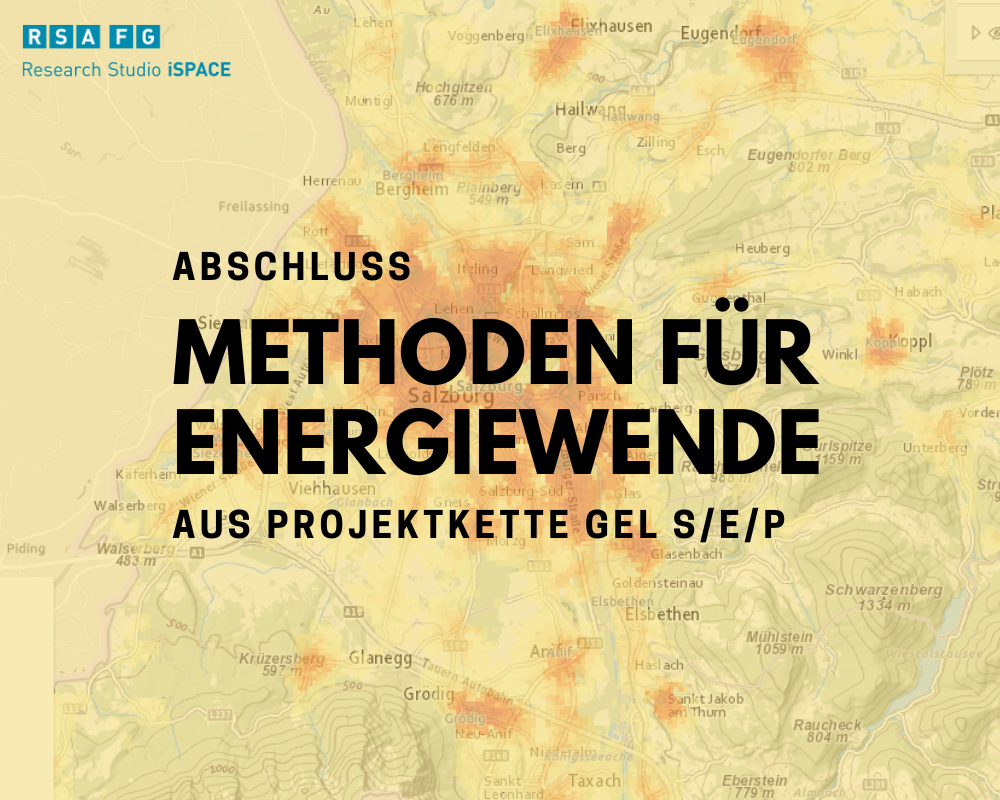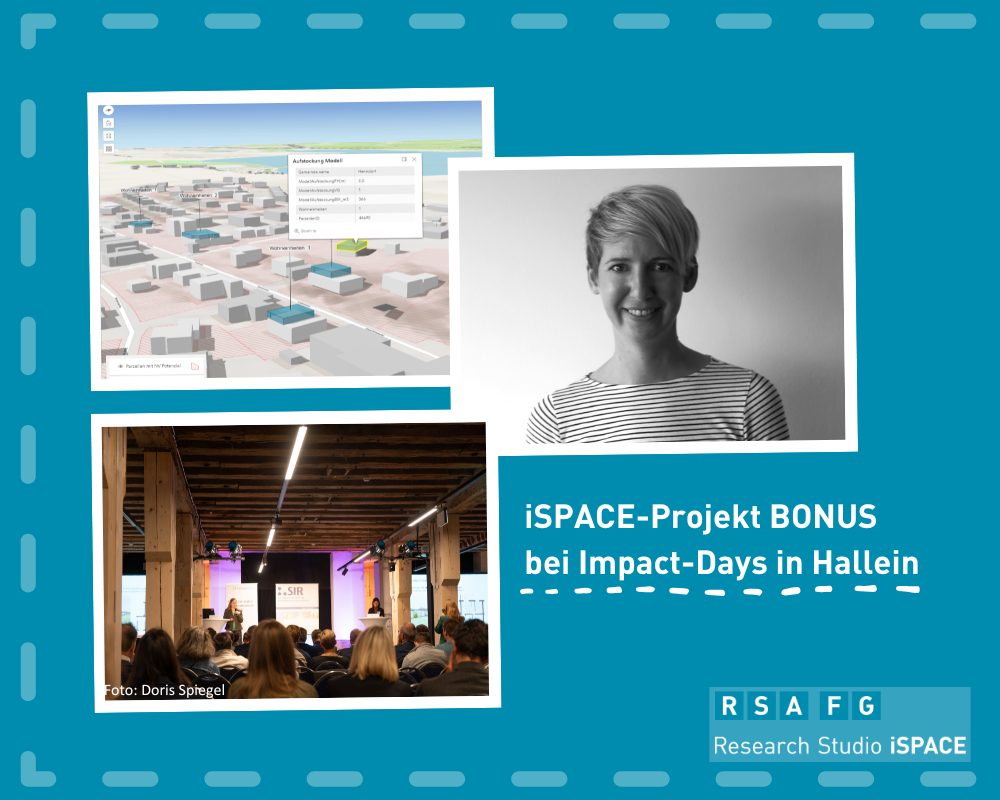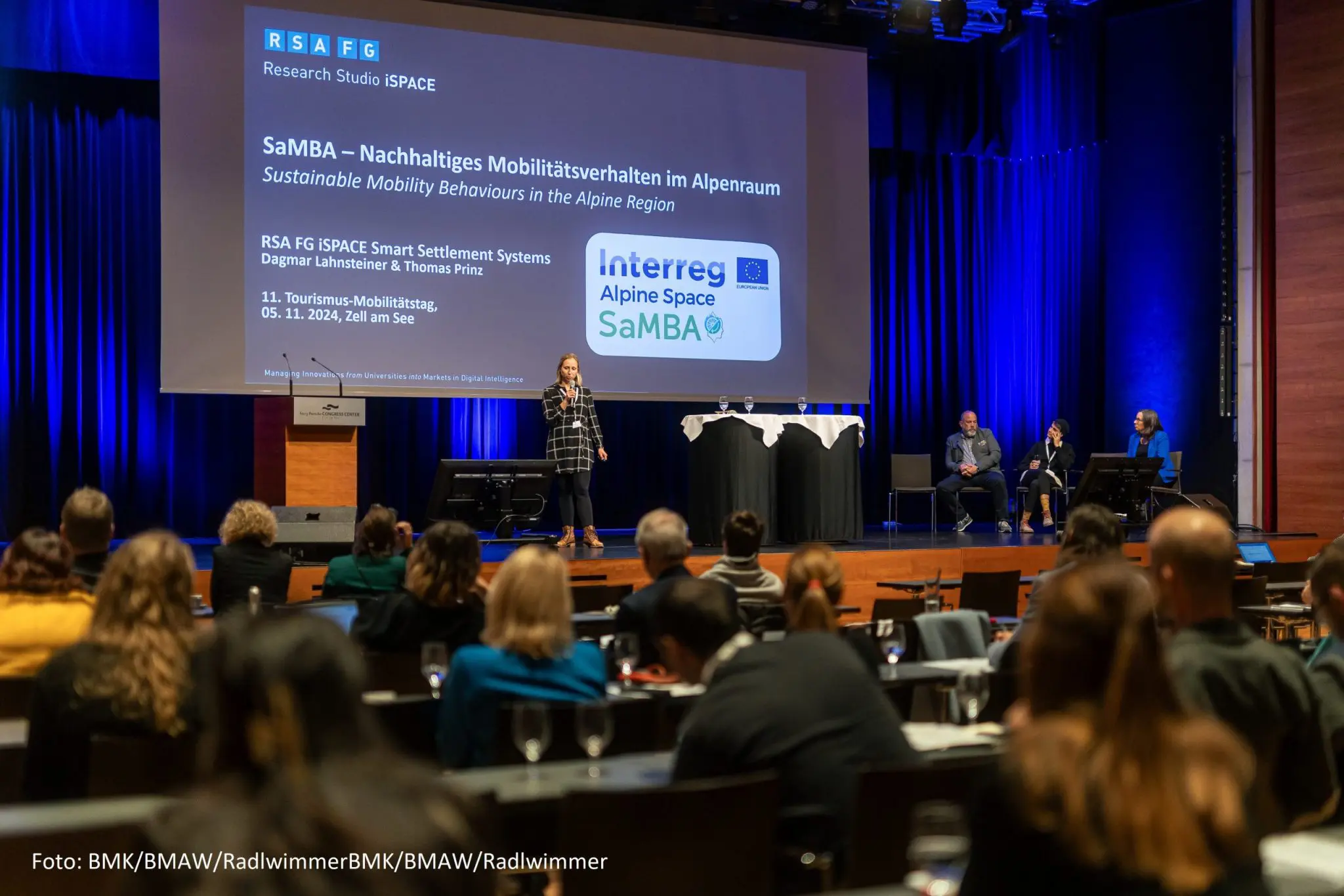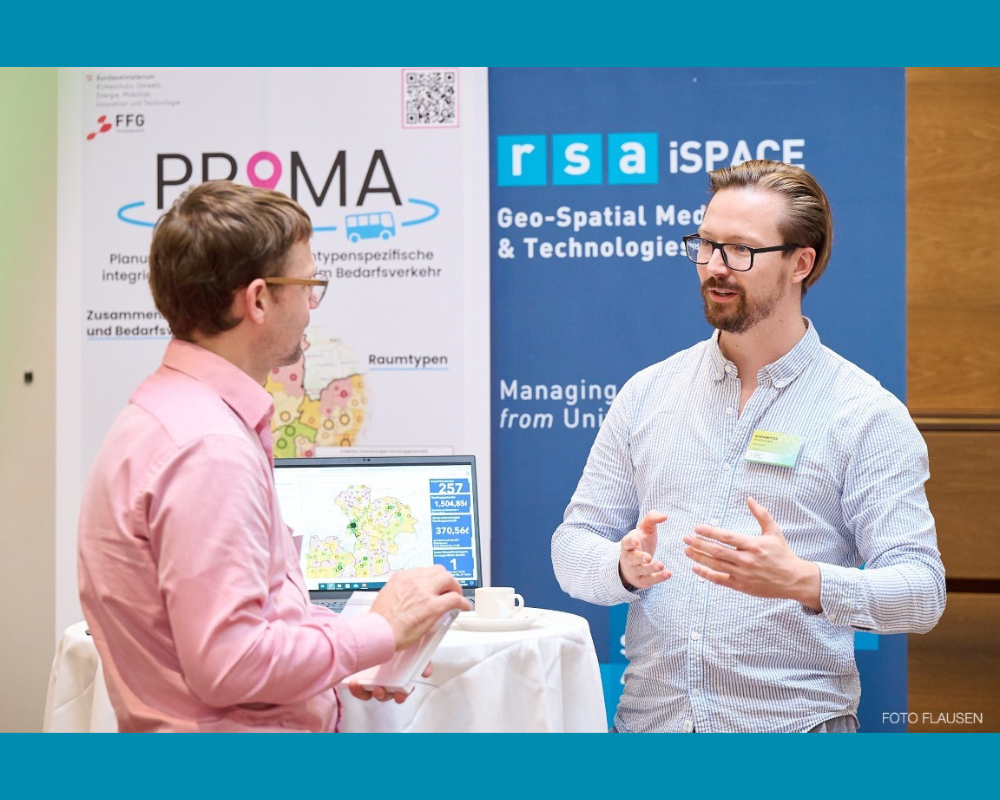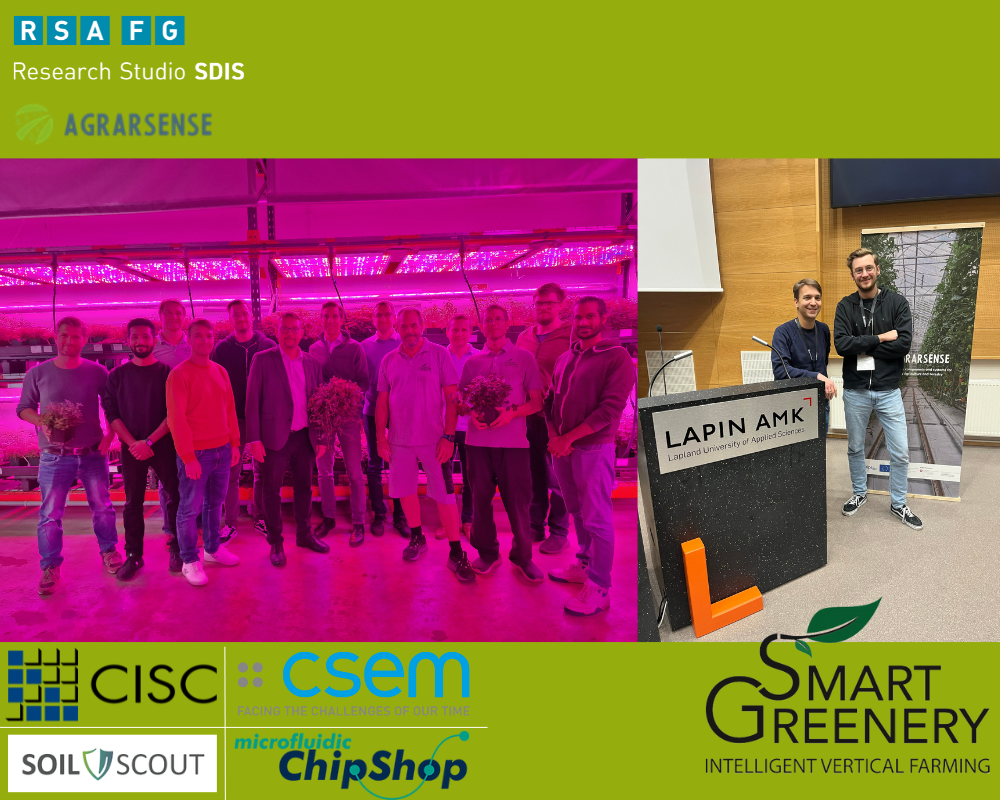Get the latest info on…
Mit digitalen Zwillingen Gemeinden bei der Klimawandel-Anpassung helfen
The Alpine region, and therefore also the border region between Salzburg and Bavaria, is particularly affected by climate change. The effects are becoming increasingly visible and noticeable due to the increase in extreme weather events such as heat and drought periods, heavy rainfall, hailstorms, forest fires and storms. It is therefore all the more important to proactively take appropriate measures to adapt to climate change and thus reduce the negative effects.
iSPACE-Team gives insight into current research at Salz21
At salz21 | Home of Innovation, the iSPACE team focused on opportunities in the age of digital technologies, data and AI with the specialist workshop “Planning innovations for climate-resilient communities and regions”. The project team from the Center for Alpine Construction also presented its research.
Article on BONUS redensification consulting in ÖGZ
Thomas Prinz and Florian Schöpflin present the BONUS/BONANZA project in the current issue of ÖGZ.
Jetzt anmelden für iSPACE-Workshop zu “klimaresilienten Gemeinden und Regionen”
Home of Innovation – salz21 präsentiert wegweisende Entwicklungen von Mobilität der Zukunft bis hin zu künstlicher Intelligenz. RSA FG iSPACE ist mit einem Workshop zu "Smarte Gemeinden" mit dabei.
SDIS project researches methods for digital product passports in the industry
The EU project Pace-DPP makes it easier for companies to convert and implement the ESPR regulations for more sustainable products. The project is coordinated by Virtual Vehicle Research GmbH.
iSPACE-Project 5G-MOBiS featured in DER STANDARD
iSPACE-Researcher Florian Schöpflin and Studio Director Thomas Prinz talked about their project "5G-Mobis" with the Austrian newspaper DER STANDARD. In a special feature about current research projects they showed how data from mobile networks was used in 5G-Mobis.
Mit digitalen Zwillingen Gemeinden bei der Klimawandel-Anpassung helfen
The Alpine region, and therefore also the border region between Salzburg and Bavaria, is particularly affected by climate change. The effects are becoming increasingly visible and noticeable due to the increase in extreme weather events such as heat and drought periods, heavy rainfall, hailstorms, forest fires and storms. It is therefore all the more important to proactively take appropriate measures to adapt to climate change and thus reduce the negative effects.
iSPACE-Team gives insight into current research at Salz21
At salz21 | Home of Innovation, the iSPACE team focused on opportunities in the age of digital technologies, data and AI with the specialist workshop “Planning innovations for climate-resilient communities and regions”. The project team from the Center for Alpine Construction also presented its research.
Article on BONUS redensification consulting in ÖGZ
Thomas Prinz and Florian Schöpflin present the BONUS/BONANZA project in the current issue of ÖGZ.
Jetzt anmelden für iSPACE-Workshop zu “klimaresilienten Gemeinden und Regionen”
Home of Innovation – salz21 präsentiert wegweisende Entwicklungen von Mobilität der Zukunft bis hin zu künstlicher Intelligenz. RSA FG iSPACE ist mit einem Workshop zu "Smarte Gemeinden" mit dabei.
SDIS project researches methods for digital product passports in the industry
The EU project Pace-DPP makes it easier for companies to convert and implement the ESPR regulations for more sustainable products. The project is coordinated by Virtual Vehicle Research GmbH.
iSPACE-Project 5G-MOBiS featured in DER STANDARD
iSPACE-Researcher Florian Schöpflin and Studio Director Thomas Prinz talked about their project "5G-Mobis" with the Austrian newspaper DER STANDARD. In a special feature about current research projects they showed how data from mobile networks was used in 5G-Mobis.
Project chain GEL S/E/P develop methods for energy transition
Over a period of six years, 24 project partners created first a HEAT atlas and then an ENERGY atlas, which is already being used in three Austrian federal states.
iSPACE project on redensification at the Impact Days in Hallein
At the RENOWAVE.AT Impact Days in Hallein, the Innovation Lab cooperated for the first time with the Alpine Building Network and the SIR - Salzburg Institute for Spatial Planning and Housing. ISPACE researcher Sabine Gadocha gave a presentation on redensification potential in Salzburg and strategies for mobilising it.. The annual events „Brennpunkt Alpines Bauen“ and „Salzburger Wohnbausymposium“ took place this year as part of the Impact Days. Lectures, discussions and workshops complemented the first Austrian exhibition ‘Serial Refurbishment in Austria’ and the ‘RENOWAVE.studio’ young talent format. On the first day of the congress, the focus was on approaches to decarbonisation and sustainable refurbishment in existing buildings. The results of RENOWAVE.studio - the newcomer format for young professionals - were presented at the end of the first day. Excellent klimaaktiv buildings were also brought to the spotlight. The second day was all about existing neighbourhoods: ‘Get rid of it or make something of it?’ was the topic. Sabine Gadocha contributed her expertise and showed how the Research Studio iSPACE analyses and visualises redensification potential in Salzburg using geoinformation methods. In addition, the ‘BONUS planning consultation’ (Bestand Optimal Nutzen - Umwelt Stärken) developed with the City of Salzburg and other partners to mobilise redensification potential by creating living space in existing buildings was presented and potential measures were demonstrated using two consultation examples. Sabine Gadocha © Jeremia Schwegler Possibility for 60.000 more housing unites The house for one family is still the most popular form of housing in Austria. However, this is accompanied by a high level of land [...]
Initiatives for sustainable travel and holidays meet in Zell am See
The Tourism Mobility Day in Zell am See offered networking on possible solutions for sustainable mobility in tourism. Here, 150 experts exchanged views on opportunities and challenges in times of climate change. Dagmar Lahnsteiner from Studio iSPACE and the Ultimob, Airport 4.0, PRIMA and SaMBA projects were also present.
Mit digitalen Zwillingen Gemeinden bei der Klimawandel-Anpassung helfen
The Alpine region, and therefore also the border region between Salzburg and Bavaria, is particularly affected by climate change. The effects are becoming increasingly visible and noticeable due to the increase in extreme weather events such as heat and drought periods, heavy rainfall, hailstorms, forest fires and storms. It is therefore all the more important to proactively take appropriate measures to adapt to climate change and thus reduce the negative effects.
iSPACE-Team gives insight into current research at Salz21
At salz21 | Home of Innovation, the iSPACE team focused on opportunities in the age of digital technologies, data and AI with the specialist workshop “Planning innovations for climate-resilient communities and regions”. The project team from the Center for Alpine Construction also presented its research.
Article on BONUS redensification consulting in ÖGZ
Thomas Prinz and Florian Schöpflin present the BONUS/BONANZA project in the current issue of ÖGZ.
Initiatives for sustainable travel and holidays meet in Zell am See
The Tourism Mobility Day in Zell am See offered networking on possible solutions for sustainable mobility in tourism. Here, 150 experts exchanged views on opportunities and challenges in times of climate change. Dagmar Lahnsteiner from Studio iSPACE and the Ultimob, Airport 4.0, PRIMA and SaMBA projects were also present.
Two iSPACE projects at the Mobility Forum in Salzburg
The numerous participants at the Mobility Forum considered the roadmap for the future. Both the PRIMA project and the zukunftswege.at mobility laboratory were presented in the new ‘Sciene&Innovation’ format.
Reaching new heights with Vertical Farming: AGRARSENSE Use Case 2
The project AGRARSENSE grows an understanding of how to solve issues of food security. Studio SDIS participated in an integration workshop in Lower Austria and a meeting in Finland to drive these efforts forward.


